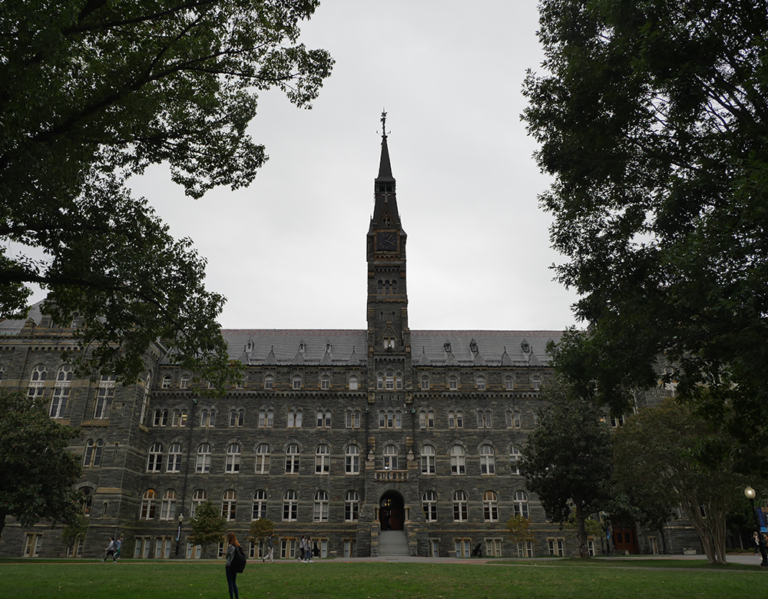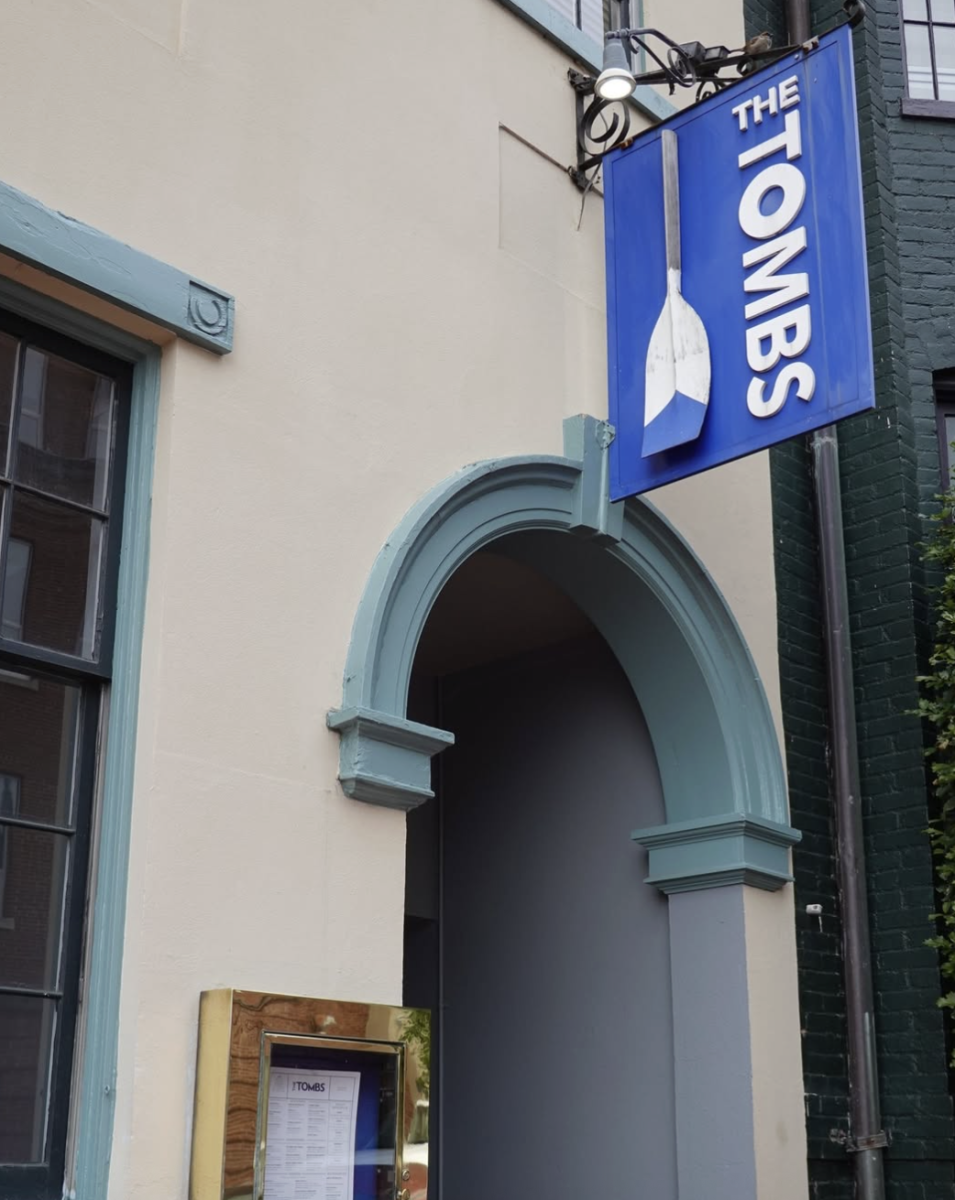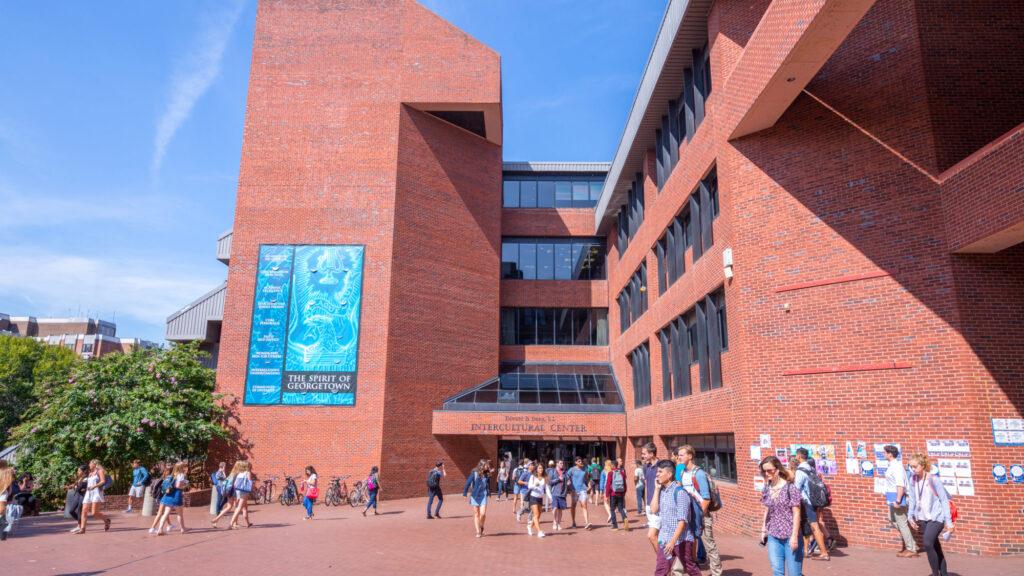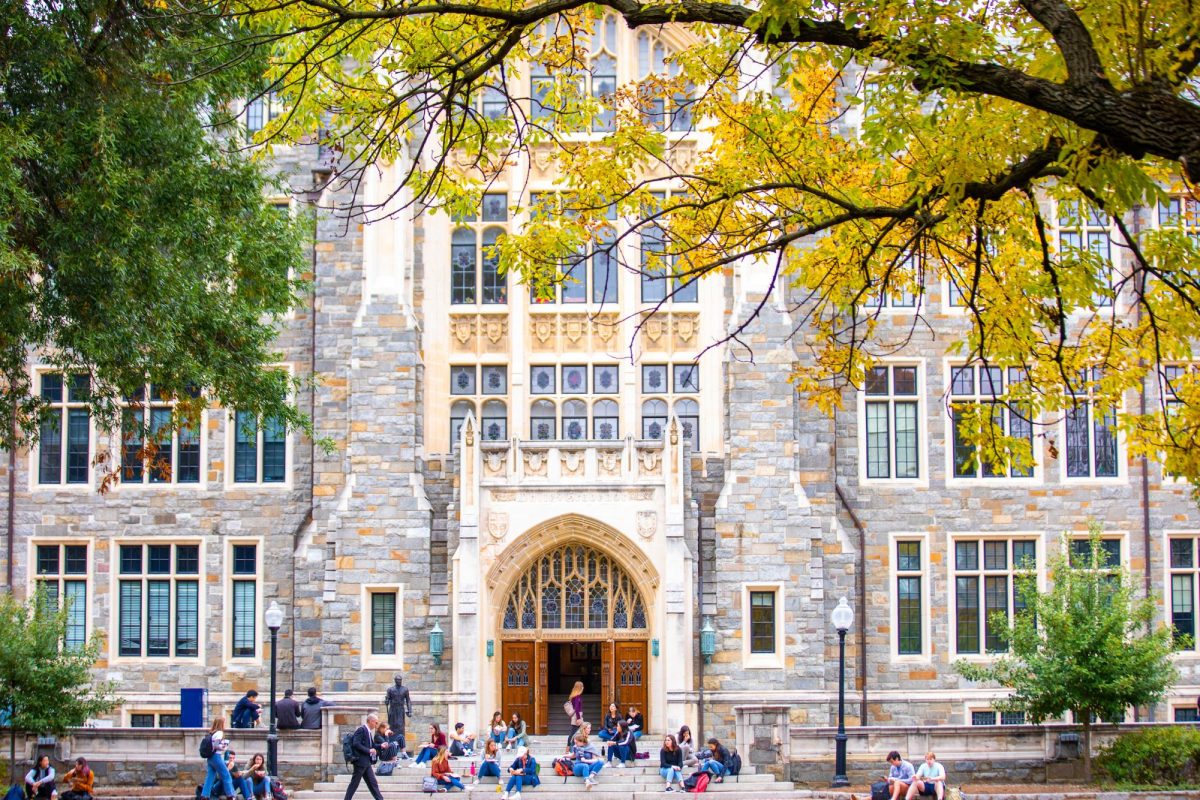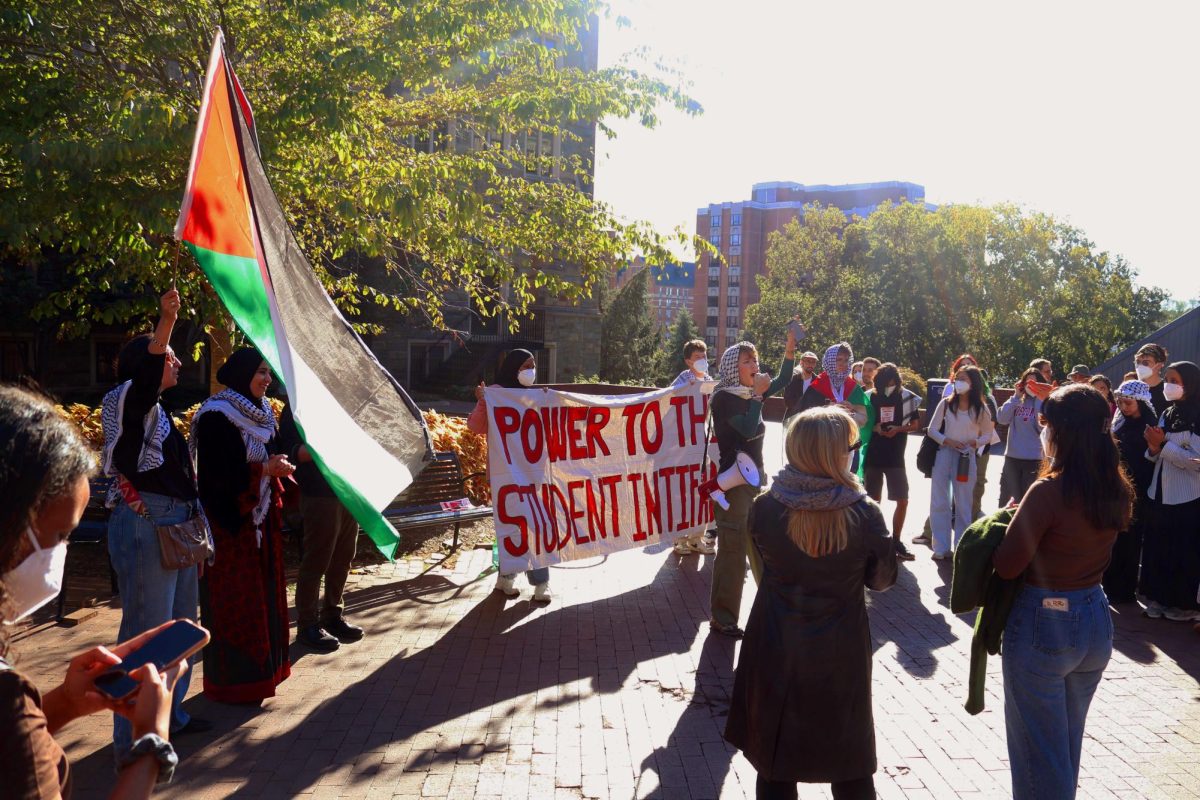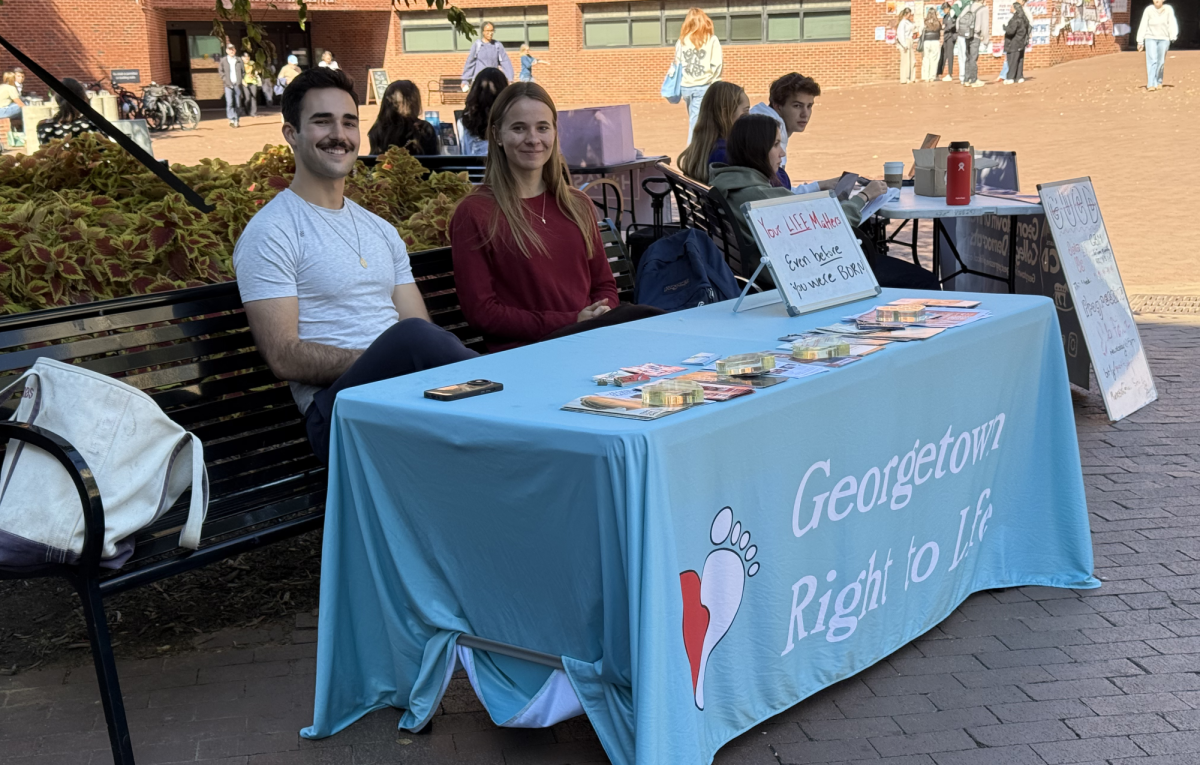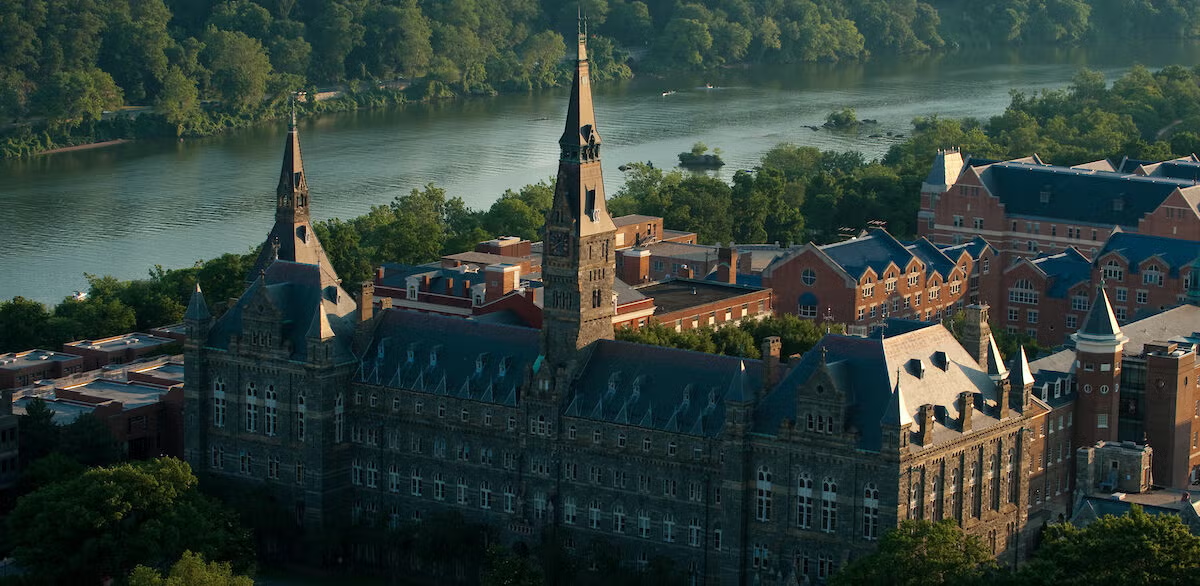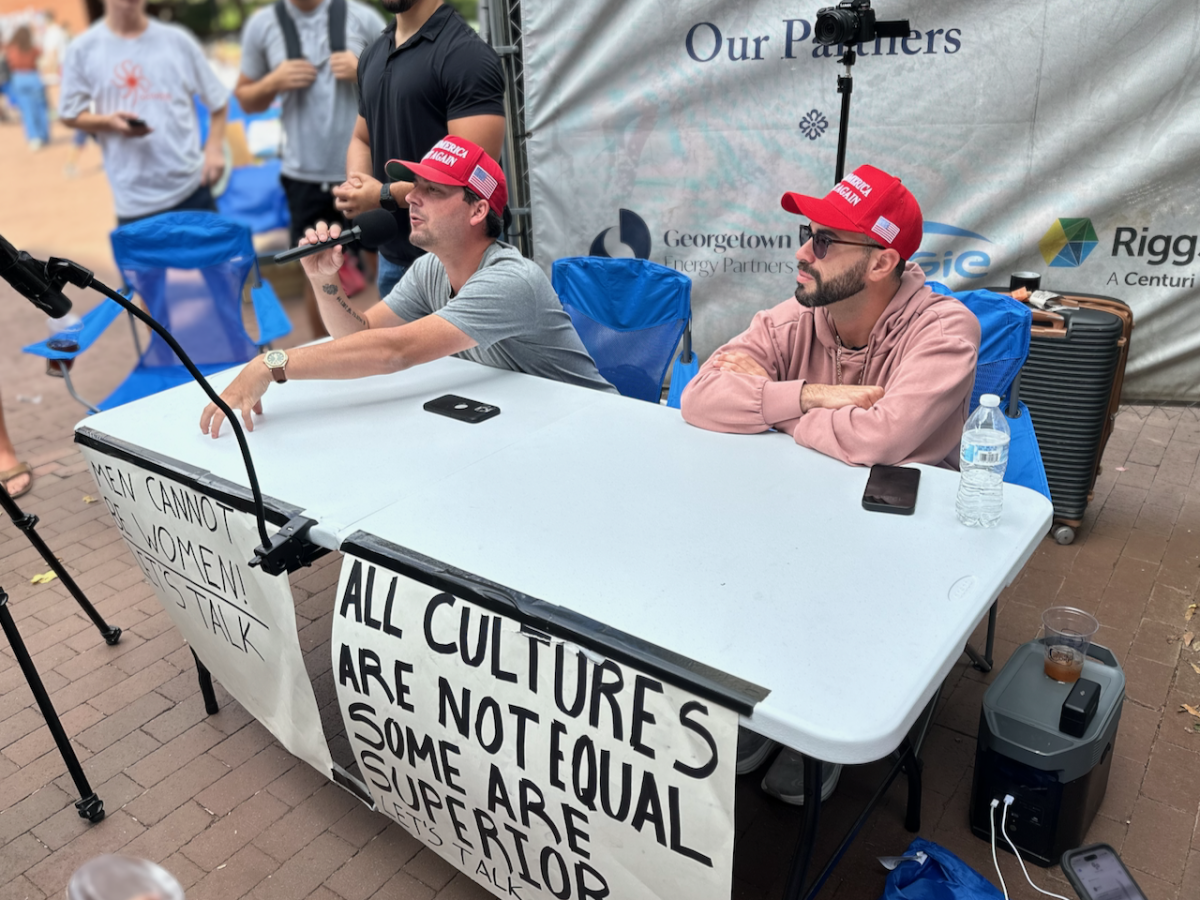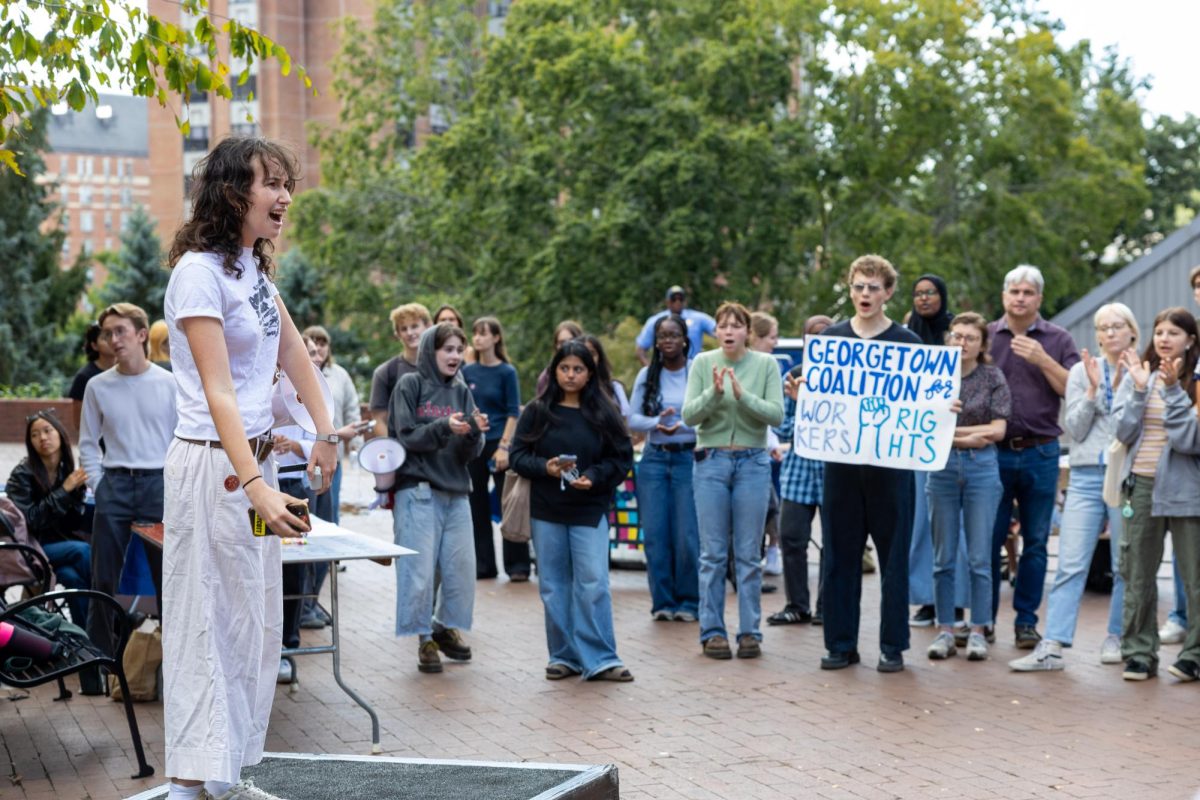Members of the Georgetown University community gathered for a prayer service and candlelight vigil on the one-year anniversary of the Oct. 7, 2023, attacks on Israel.
The Office of Jewish Life, the university-sponsored campus ministry for Jewish students, organized the Yizkor memorial service, a prayer service to mourn the dead, in Gaston Hall. Afterward, the Georgetown Israel Alliance (GIA), a student organization that celebrates Israeli society and culture, held a vigil in front of Healy Hall, lighting candles and reading letters and poetry from the friends and families of people killed in the attacks.
Talia Zamir (CAS ’26), co-president of the Jewish Student Association, a community-building student organization for Jewish students on campus, who helped organize the memorials and spoke at the Yizkor service, said the vigil served as a reminder of those killed and others still held hostage.
“The candlelit vigil was about telling the stories of the people that were killed on Oct. 7 and making sure that we remember them for who they were,” Zamir told The Hoya. “The vigil was about signifying the people that we lost and are still waiting for to return home and kind of giving a sense of we are here on this campus, we feel the pain of this loss.”
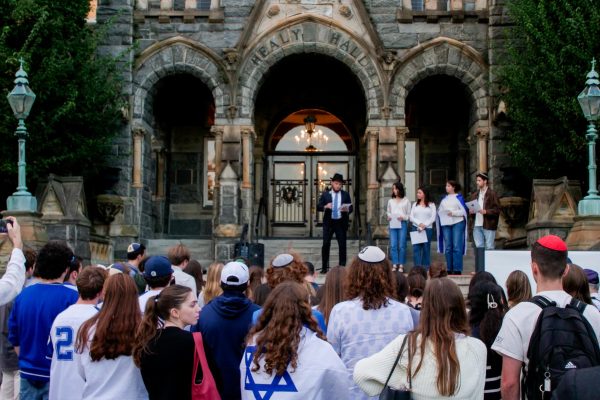
In its Oct. 7 attack in southern Israel, Hamas killed almost 1,200 Israelis and took 251 hostages, 97 of whom have not been released. During the attack, hundreds of civilians and Israel Defense Forces (IDF) soldiers were killed in villages near the Gaza border and at a music festival. The Israeli government believes at least 33 of those hostages are dead.
Yuval Lichtblau (CAS ’28), who attended both memorials, said she was comforted to find a community on campus and feel their support in remembering the attacks.
“It was really comforting knowing that I have my people, and that there’s a strong community here,” Lichtblau told The Hoya. “I feel if I had been alone on Oct. 7, I would have had a terrible day, it would have been awful. And I think that being able to have people that you can share this experience with is really helpful for your mental health and just knowing that you always have support.”
Zamir said the Jewish community on campus needed to mourn the attacks and their aftermath.
“The Jewish community has been in a tremendous amount of pain for a year now, and in a lot of ways, we’re told that our pain is invalid or that it needs to be suppressed or it isn’t worthy of being felt,” Zamir said. “I hope that people understand that we have as much right as anyone on campus to feel pain for losing our brothers and sisters and any loss of human life.”
“We may not always shout about it, we may not always post about it, but we are in an immense amount of pain and it needed to be felt,” Zamir added.
Rabbi Ilana Zietman, the university’s director for Jewish Life who led the Yizkor service, also said people have dismissed the pain of the Jewish community.
“A lot of us have been dreading reliving the events of Oct. 7, but also just this past year of feeling like in so many ways, even the facts of Oct. 7 have been disputed,” Zeitman told The Hoya. “Jewish pain has been denied. Jews have been told, ‘What do you expect?’ And that’s really, really devastating and also, I’d say, morally bewildering.”
Lichtblau said that spending time with the Georgetown Jewish community was important in creating solidarity, especially as antisemitism has risen in the wake of the attacks.
“Ever since Oct. 7, my community has experienced a lot more violence and antisemitism,” Lichtblau said. “It’s really important to just take the time to be with my fellow Jews and kind of just find a group of people that are willing to remember what happened, together.”
“It kind of just brings everything home. It reminds you of the people that are living in Israel and that have suffered this atrocity, they’re real human beings,” Lichtblau added.
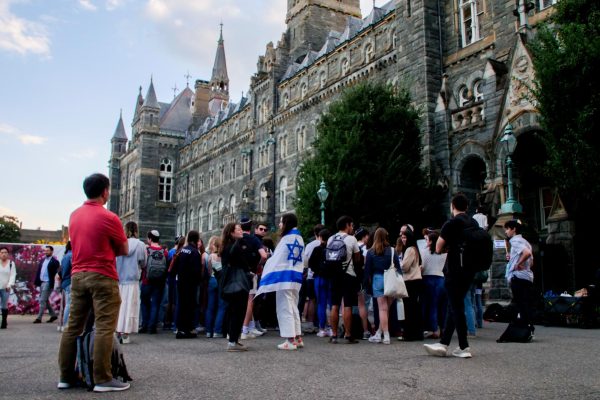
Zamir said she hopes the university community sees that students across campus deeply feel grief and pain related to the Israel-Hamas war.
“I hope that the university understands that this has been a deeply traumatic year for Jewish students, for Muslim students, for Arabs, for Israelis, for a whole plethora of people and identities, and we’re all feeling it,” Zamir said.
Israel’s military response to Hamas’s attacks has killed over 42,000 people and has left over 96,000 people injured, many of whom are women and children. Israeli air strikes, including bombings of schools, hospitals and civilian targets, have displaced over two million Gazans, at least 85% of the population, who now face extreme hunger.
Zeitman said the Jewish community should continue praying for peace and urged students of different backgrounds to come together.
“To express also hope for peace, coexistence, you can never give up on that even when it feels incredibly distant and incredibly far,” Zeitman said. “As Jews, we can never stop praying for peace and working towards peace. No matter how naive it might feel at times, that is our tradition. That’s what it tells us to do.”
“I hope that students here can meet each other, sorrow to sorrow and heart to heart, in this moment, this year ahead,” Zeitman added. “The only way we’re actually going to solve this conflict is to feel something with and for each other. That’s my hope and my prayer.”



